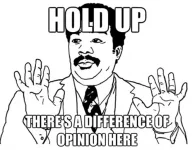carguy75
Registered Member
- Joined
- Jun 23, 2018
- Messages
- 3,067
- Reaction score
- 1,640
- Points
- 113
- Location
- Atlanta, Georgia
- Genesis Model Year
- 2015
- Genesis Model Type
- 2G Genesis Sedan (2015-2016)
When in doubt, take it out.i have k&n in the 15 v6 previous owner installed. i'm debating if i should replace it with stock filter after reading this.
K&N Air Filter Review - Debunking the Myths (and why OEM is better)
"Compared to the AC, the K&N “plugged up” nearly 3 times faster, passed 18 times more dirt and captured 37% less dirt. "
If you believe that K&N filters are as bad as the article states then remove it. I read that article years ago. However, if K&N filters are actually that bad then why are they still making and selling filters for over three decades.
I do not know if the article is really legit with it testing or just pushing the author point of view, but it makes senses that a filter that allows more air follow will allow more dirt to pass through.
In K&N defense it filters 96% of the dirt in the air while flowing more air per the test. I doubt any high flowing performance filter will filter 99% of the air and still out flow a paper filter.
If you feel better with a filter that filters more than 96% then go with the OEM filters.
Last edited:










